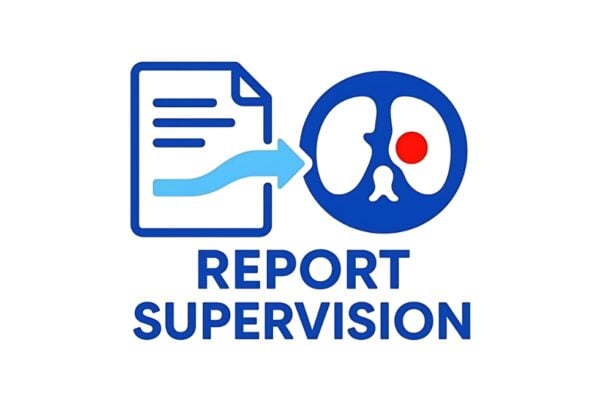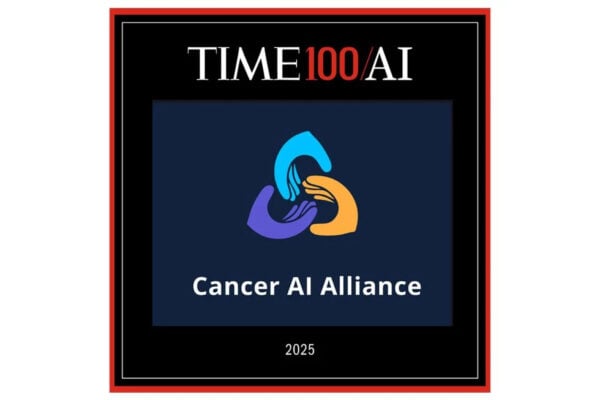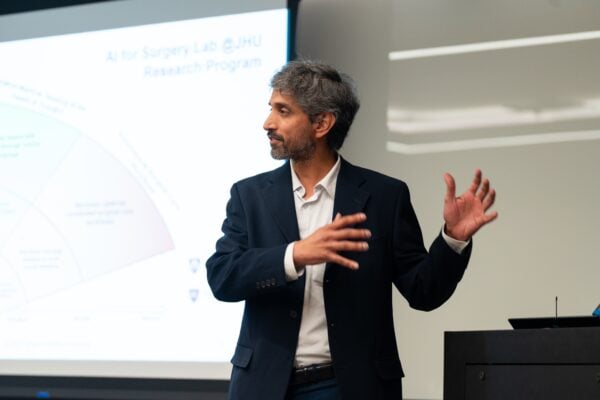By: Jaimie Patterson

For AI tumor detection, a picture isn’t always worth a thousand words
- September 24, 2025
- Machine Learning and Artificial IntelligenceMedical Imaging
Johns Hopkins researchers have developed a new method that uses existing radiology reports to train AI models to locate tumors on CT scans more quickly and accurately.

Cancer AI Alliance named to TIME100 AI 2025
- September 4, 2025
- Center NewsMachine Learning and Artificial Intelligence
The partnership includes Johns Hopkins researchers developing AI-powered cancer care.

What congressional staffers need to know about AI in medicine
- August 13, 2025
- Center NewsMachine Learning and Artificial Intelligence
Hopkins expert Swaroop Vedula advises on key AI advancements that government staff should know about.

Axel Krieger appointed the Carol Croft Linde Faculty Scholar
- August 7, 2025
- Center News
The award supports promising young faculty in the Department of Mechanical Engineering.

Zongwei Zhou awarded $2.8 million NIH grant
- August 4, 2025
- Machine Learning and Artificial IntelligenceMedical Imaging
The National Institutes of Health awarded Zhou and his team a four-year, $2.8 million R01 grant to develop an AI system to enhance the detection and monitoring of metastasis in colorectal cancer using patients’ CT scans.

Jeremy D. Brown earns Johns Hopkins Catalyst Award
- July 31, 2025
- Center News
Faculty across dozens of disciplines were awarded $100K to pursue their work.